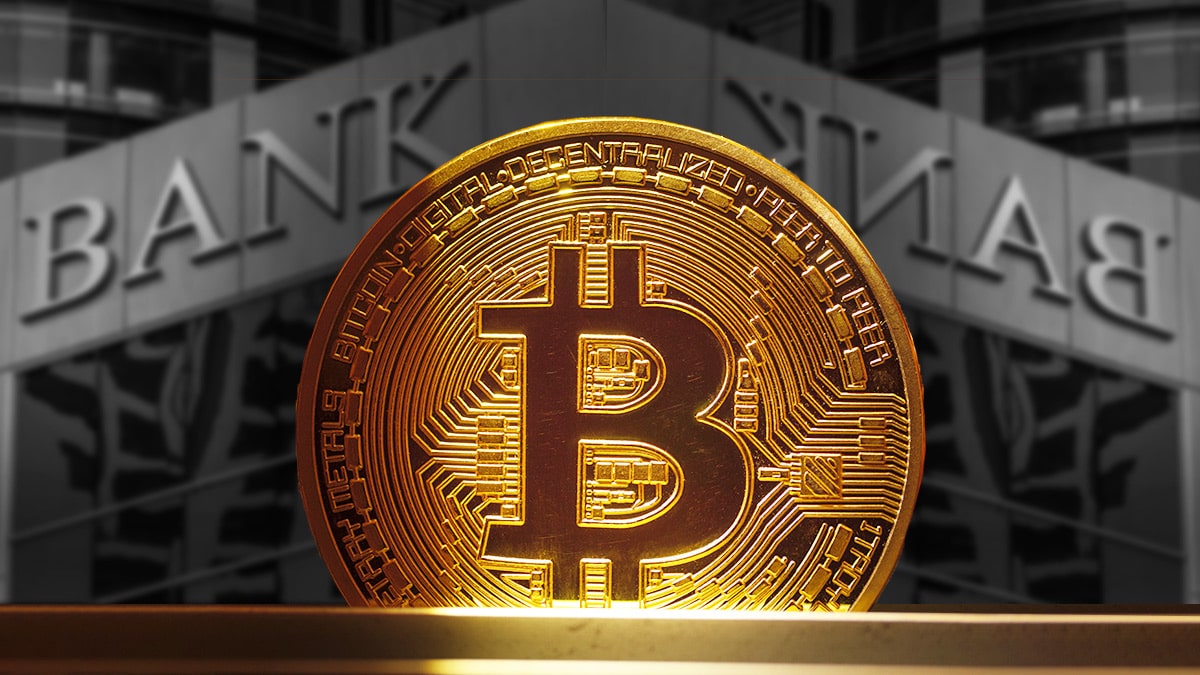
Bitcoin could eclipse banks, according to new BIS report
- Regulations
- May 20, 2022
The growing interest aroused by the bitcoin and other cryptocurrencies ecosystem among retail investors, and especially among institutional investors, could be leaving banks behind, according to estimates by the Bank for International Settlements (BIS).
In a report published this May 18 titled “Bitcoin shadow banking?”, analysts from the Department of Monetary Economics of the BIS talk about the impact that the exponential expansion of the industry linked to bitcoin has had in the financial sector, particularly in banks.
“We found that cryptocurrency-related service offerings by the world’s leading banks remain at very modest levels,” the study indicates.
According to the data provided by the Basel Committee on Banking Supervision (BCBS), a global organization that brings together banking supervisory authorities, by the end of 2020 bitcoin-related services offered by banks reached just USD 188 million.
The BCBS has been collecting this data on banks’ exposure to bitcoin since 2018, with very little information before that year. In that sense, only 7 of the 178 banks those who participated in that compilation reported their service offering with cryptocurrencies.
In all regions, the banks that reported crypto exposures were based in Canada, France, South Korea, the United Kingdom and the United States. Their exposure to cryptocurrencies rose, on average, from less than 0.02% of banks’ total risk-weighted assets, to about 0.05%.
Bank for International Settlements (BIS).
The BCBS data includes a world map in which the geographical location of the banks that have included bitcoin services on their platforms is shown. Most are found in North America, Central Europe and in South Korea.
The rest of the banks included in the study, and who claimed not to offer services with cryptocurrencies, they are in Latin American countries (Argentina, Brazil and Mexico), southern Africa, much of Europe and Southeast Asia.
In most of them the regulations in force in their countries they prevent them from adding services with bitcoin. It is worth mentioning the recent case of the Argentine banks Brubank and Galicia, which had to suspend their new cryptocurrency products on instructions from the Central Bank.

Banks need bitcoin to innovate
In their writing, the BIS researchers recognize that for banking institutions to have a greater capacity for innovation, and increase financial inclusion, it is necessary banks to take on greater exposure to bitcoin.
The above assumption is based on the current demands of users, increasingly attracted by decentralized finance (DeFi) and the cryptocurrency market. A fact that has led many large and former banks to include cryptoassets in their platforms with a view to maintaining its clientele, thus acknowledging that “digital assets are becoming part of the trend”.
Among such large financial institutions is, for example, the Deutsche Bank, the largest bank in Germany, which last year unveiled its plans to offer a cryptocurrency custody and trading service. The same offer was made by the New York Mellon, the oldest bank in the United States at the beginning of 2021, as reported by Criptonews.
To the list is added the Swiss subsidiary of the Spanish bank BBVA, which offers since the end of last year, a 100% digital investment account, aimed at clients in more than 30 nations who want to invest in bitcoin and the Ethereum cryptocurrency.
On this, the BIS report points out that the few banks with exposure to bitcoin are institutions with a Tier 1 capital, of more than 3,000 million euros, and internationally active.
Exchanges should compete with banks on ‘regulatory equality’
Despite the aforementioned advances, BIS analysts note that, so far, the main activities related to the cryptocurrency market are still focused on the exchanges.
It is these companies that serve the majority of retail and institutional clients interested in bitcoin, and that “operate with very light regulation” outside the traditional financial system, the study notes.
This is a fact that, in the opinion of the BIS, it generates unequal regulatory treatment between banks and exchanges.
Hence his insistence on the need for greater regulation so that cryptocurrency service providers “operate on an equal footing with banks.”
This (regulatory inequality) creates significant gaps and raises the need for a proactive, holistic and forward-looking approach to monitoring cryptocurrency markets. (The new regulatory framework) should focus on ensuring a more level playing field between crypto services provided by financial institutions and those offered at banks.
Report of the Bank for International Settlements.
The BIS concludes its study by highlighting the fact that, in its view, banks they would seem to be better positioned (than exchanges) to leverage existing infrastructure and governance to establish a strong custody network that facilitates cryptocurrency trading.
